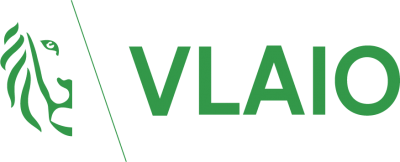Topics
We organise our actions in six thematic & strategic agendas:
Strategic Agendas:
Bio-economy
Circular Construction
Chemicals/Plastics
Manufacturing Industry
Food Chain
Water Cycles
Seven leverages provide additional support:
Leverage effects:
Lever Policy Instruments
Lever Circular Procurement
Lever Communication
Lever Innovation & Entrepreneurship
Lever Financing
Lever Jobs & Skills
Lever Research
What, why and how?
Why are we pursuing a circular economy?
Future visions 2050
How do we see our circular future?
About our management
Who steers what at Flanders Circular?
HelloWater
HelloWater's scalable, modular wastewater treatment plant purifies wastewater that can be made available again or flow into local nature to make our country more resilient to drought.
In Belgium, 400 000 homes are not connected to the sewerage system. The ribbon development in our country makes water treatment expensive and, as a result, a network of sewers is often unfeasible. HelloWater tackles this problem by installing local, environmentally friendly water treatment plants where plants do the work. That treated wastewater is subsequently reused or flows purely back into nature, protecting the environment from drought. The clean water in the streams makes the neighbourhood a more pleasant place to live in or walk through. Moreover, the system meets the strictest discharge standards guaranteed by Benor and a proprietary quality platform and has a smaller carbon footprint than conventional sewers.
This scalable, modular wastewater treatment plant has infinite possibilities. Placing an installation in the stream, semi-underground, in clusters or freestanding is all possible, depending on the need of the neighbourhood or municipality.
Ledegem becomes Leaudegem
With the "Ledegem becomes Leaudegem" project, HelloWater wants to demonstrate scalable, sustainable and modular small-scale water treatment plants in an innovative concept. Until a few years ago, wastewater from some houses caused odour nuisance in Sint-Pietersstraat because it was discharged into the bay canal. A solution in the form of a new sewerage system was not planned until 2035.
HelloWater's pilot project offered a solution. Construction took 45 days, allowing the full installation to be installed in June 2022. A new sewer system would have taken an average of 7.7 years.
In water treatment, HelloWater applies a nature-based principle. The plant itself provides pure water that is returned to nature, which will improve biodiversity in the watercourses. Where previously wastewater from homes was discharged into the canal every day and there was no opportunity for biodiversity, now purified water runs into the canal giving biodiversity a chance to flourish. The plant purification itself consists of flowering plants, which attract insects. This in turn benefits the insect population.
The innovative decentralised water treatment system keeps the water on site. This has a positive effect on water stress and desiccation of the environment. Scientists have been advocating low 'water kilometres' for years as a tool to better arm Flanders against drought. This means more buffering, more infiltration and less direct discharge into large watercourses, which channel water to the North Sea in the short term. Here, local water treatment can have an important impact.
Foscube
Before the water is returned to nature, a phosphate removal step is carried out. This concept is unique and the method used is even more unique. Conventional phosphate removal are not suitable for decentralised applications, as chemicals, sludge and secondary pollutants make this difficult.
HelloWater is only just emerging from a seven-year ongoing European Interreg project I-QUA, which tested alternative phosphate removal, among other things. The good results made us want more and a scaled-up version was installed in Ledegem, under the name: FOSCUBE®. This ensures a 95% phosphate reduction by sustainably reusing an iron-containing residual product from drinking water production.
Henry van de Velde Award
In 2023, 'Ledegem becomes Leaudegem' received a Henry van de Velde Award for Environment. The jury commented: "This project has rethought the entire water issue from a local context. It offers a solution, with respect for nature and habitat."
HelloWater
Partners BENOR
Sectors
Themes
Organisations

















